Mikan Yuuki
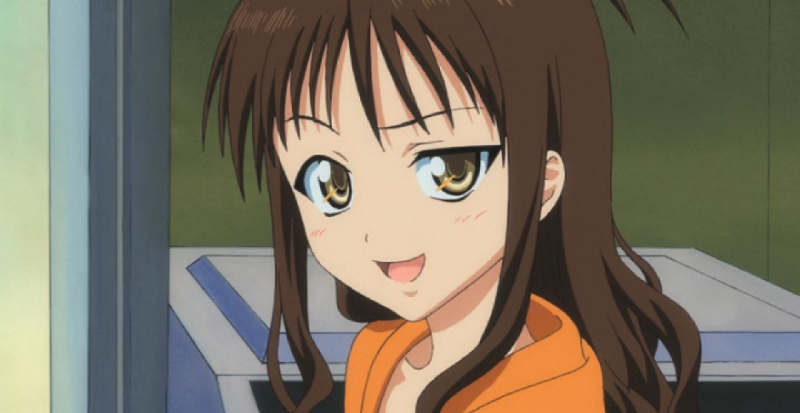
Mikan is an independent little sister character, and is lightheartedly and comically like a mother or big sister to her big brother. She is what you may call mature for her age, and even other characters in the To Love-Ru series are surprised by her mature level-headedness and productivity. This perception raises an issue, however. Because her parents were often absent and unseen, though she has memories with them, she had to rely on herself and her big brother Rito, but Rito is unreliable as a housekeeper or someone to rely on as a figure and someone to guide her mentally or emotionally. Mikan could then only rely on herself and fill the stereotypical role of the household wife. This is seen as mature, and this is where the perception raises an issue. Mikan is still just a little girl with little to no experience in the real world, thus the maturity aspect of her is hiding the deeper issue of some childhood neglect and substitution, and it could be an aspect that can cause cases of naivety from her perception of an adult situation that she does not fully understand. This may be seen when she constantly admonishes Rito for being with other girls in weird or accidentally perverted situations, whereas you see an an adult character like Ryoko Mikado not admonishing, being flustered or angry, but rather embracing. Thus Mikan Rito is just a normal girl with something like a brother complex, and so are sine real life little sisters who act maturely. They may just have deeper issues related to neglect.
Peke
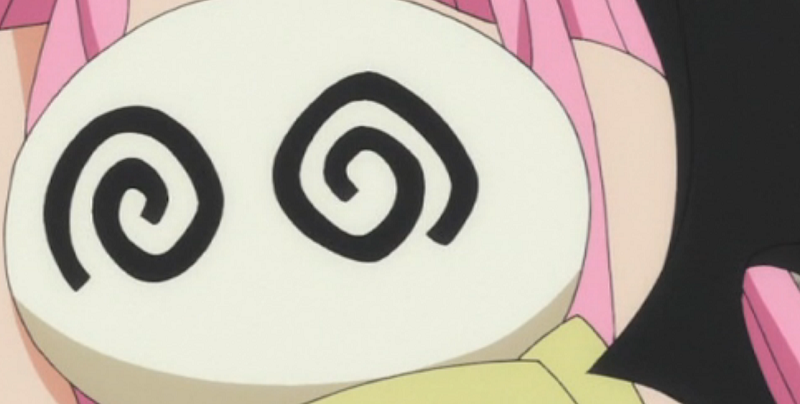
This may not be expanded on in the series, but Peke is an artificial intelligence, which can be both an amazing and terrifying occurrence. It gives pragmatic advice to Lala, and fortunately seems to have emotions, as it doesn't think Rito is fit for Lala. Also, of course it is made by Lala, who would unsurprisingly make an artificial intelligence that can change form at will and could destroy us all with an advanced network that spreads across the globe.
In Peke, Lala has created something that is basically another person, and is a life form, that is around her constantly and clothes her. Although Peke has the surface function of being a costume for Lala, perhaps Peke serves a deeper function and was made to shoulder Lala's loneliness; because if you look at Lala's background, Lala isn't seen to have any close friends to play with and be around all the time like a normal best friend would, one that anyone would want to have if they are to consider someone a best friend. The only consistent thing Lala has is her inventions and some acquaintances who she sometimes plays with, while many of them find her to be a troublemaker or intolerable. The only close friend Lala has to share her troubles with and help her and give advice continually is Peke, though the number increases as the series progresses. Basically, Peke is a costume who is there to cover Lala both physically and mentally.
Ryoko Mikado
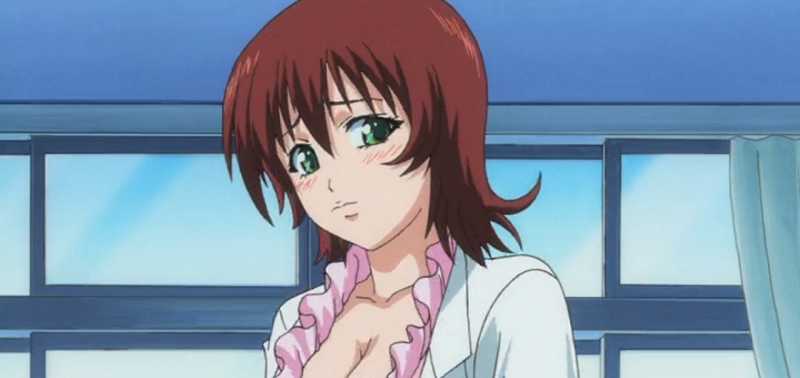
Ryoko Mikado is used as a foil for the many immature people in the series. The way she calmly and sensually takes a perverted situation, can make those perverted situations tease without too much inappropriateness, and doesn't zealously express her emotions, is something an experienced adult would do, and contrasts with the other characters in the To Love-Ru series. This is an important technique to show the reality of the other characters, that although they are amazing like Lala and Rito, they are children and are childlike, or are actually odd adults even by the series's standards. And this is further emphasized by Ryoko's beauty and buxomness.
Additionally, Ryoko invokes the divine, given she is a nurse who can treat both aliens and humans without fail. This makes it so that the characters don't mysteriously heal the next episode; you know they have Ryoko. And it's something that shouldn't be taken for granted, so go and hug your nurse or doctor, unless you're contagious.
Zastin Deviluke
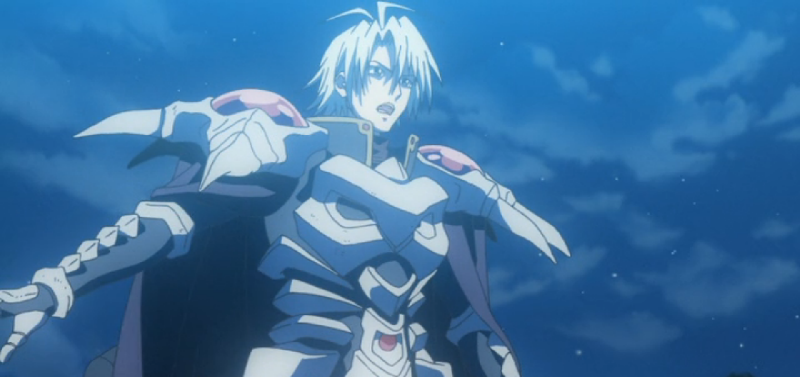
As though his different colored eyes show symbolism, Zastin has a contradictory nature. Of all the things to brag about - such as his being Lala’s personal bodyguard and being the Commander of the Deviluke royal family’s bodyguards - he brags about being Assistant chief of Studio Saibai, a company owned by Rito’s dad, technically making him an employee of the Rito family, and also paralleling his relationship to the Deviluke family. Although he is ambiguously cool, strong, handsome, and has a stable job, he has a horrible sense of direction on planet Earth and doesn't seem to correctly do his job of protecting Lala. So although he wears armor essentially all the time, he has weaknesses that can't be protected by it. Also, perhaps not by coincidence, his armor may symbolize a metaphorical or abstract protection, so he could represent a person who constantly wears a metaphorical armor to hide his weakness. And since his weakness is blatantly shown, his lack of a sense of direction, we can symbolise it as he abstractly and mentally has no direction, as in a direction in life. You see this played out in real life: you have this person who on the surface is doing well in school, has many friends, is cool and handsome. However, it turns out he really doesn't know what he wants to do, and is just doing what society tells him he should do, and this person turns out totally different than you expected years later. Now, I personally haven't witnessed it, but I've heard about it enough to know it's a thing, and I know people who seem that way.
On one hand, you could say that his focus on becoming a mangaka is a product of his misdirection. However, it does seem Zastin finds his direction, as he enjoys making manga and is even good at it, winning an award for one and bragging about it happily. So if anyone is having trouble finding a direction in life, you should strive to be a mangaka (just kidding). You should find something you really enjoy, are passionate about, or are determined to do no matter what. And it's going to be something that you're intrinsically motivated to do.
Maul and Smutts
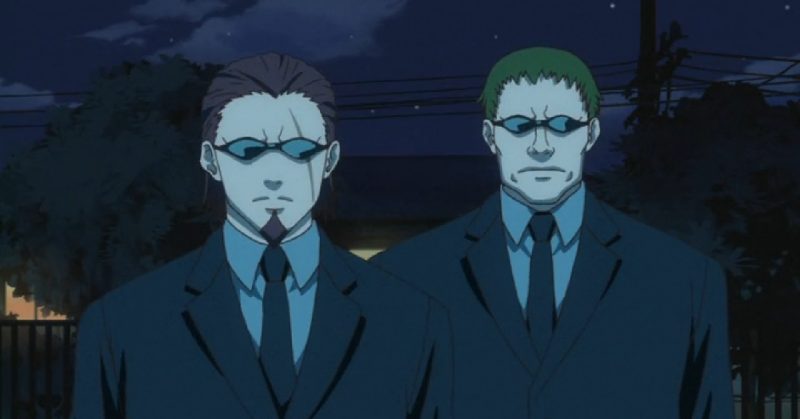
Maul(left) and Smutts(right) are more than just Zastin’s assistants. They are his brothers in arms and are basically his best friends; they're always around to help him and give their assistance in achieving his passions (although best friends don't necessarily do such a thing). Conversely, Zastin could achieve mangaka dreams by hiring or using experienced assistants, but he chooses to get the help of his closest coolly dressed pals. This adds an aspect to the series where brotherly love and respect is important. It puts an emphasis on how in times of need sometimes we need our closest friends, and I'm sure some of you, maybe most, have a memory of a best friend who has helped you through hard and troublesome times, or has been there through lighthearted moments, warming your heart and invoking nostalgia. That is essentially Maul and Smutts, though they are rather stoic and lack personality.
Kinichi Saruyama
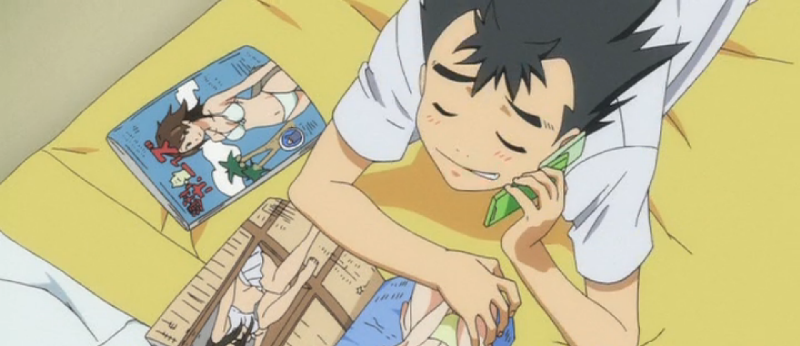
Being Rito Yuuki's best and only friend initially, Kinichi Saruyama as a character is able to give us insight into and to understand Rito, like when he tells us that Rito is usually assertive besides when it comes to Haruna Sairenji. Rito can talk to Kinichi about his troubles, mainly related to girls, so it shows us Rito's perspective on socialization - he needs someone to talk about his troubles to, even if he can think about it alone. This also keeps the show at a limited third person perspective, while still allowing us to know Rito's thoughts. So, as far as support characters go, Kinichi is key.
He also is not good with the ladies and has a incomparably popular friend who attracts all sorts of girls, allowing Kinichi to garner our pity and sometimes cringe when he does despicably perverted things. He gives us a realistic view of the average male who must dabble in the way of attraction techniques and is sometimes perverted; then we see that Rito is really a rare exception, not to be a model due to the self-denial that would follow most of us who try to be extra kind and not perverted, and not representing the average male. So fight on, Kinichi, fight on.
Honekawa
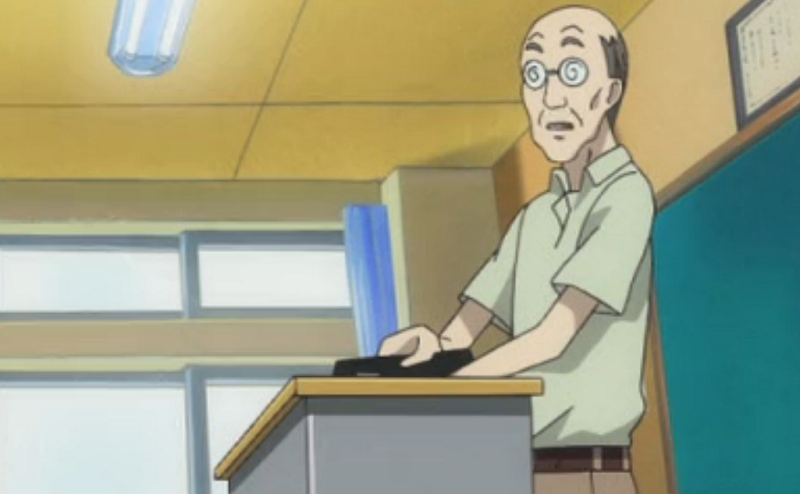
Honekawa - the importance of the homeroom teacher. Honekawa is the only consistent faculty presence in school events. His old and shivery nature parodies teachers, and he shows how the teacher presence in this show is only necessary plot-wise just because To Love-Ru has a school setting.
Principal
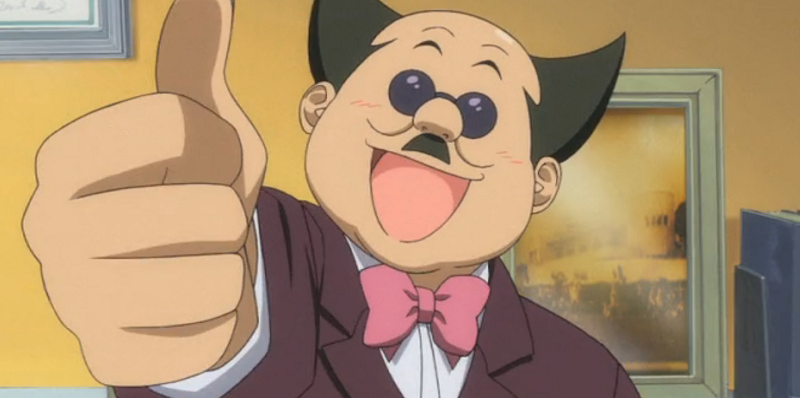
If you ever wondered, as I have, exactly what a school principal does, then the Principle is not a good example, at least I hope so. His perverted and laid-back nature allows him to invite the various destructive aliens that are responsible for the multitude of mishaps and mayhem that happen in school. Conversely, those things are technically exciting school events, thus making school more fun for all students, and they indirectly cause growth in some students like Rito. So really, the Principal just may be doing what a principal should: allowing a safe environment for students to grow and interact. Well, the environment isn't always safe, but it does fall back to being safe eventually; and we do have Ryoko Mikado to treat everyone medically so they never die, making the school safe to live another day.
Anyway, from his appearance, he must secretly have a battle-hardened past, having a strange two pointed hair-style, stylish dark round glasses, nose-strip mustache – okay, he is just eccentric. But he does invoke the reality of principals in general. I mean, don't all principals and deans just want to have fun with their students and have interesting children join their rosters and not just fulfill quotas? It's just they must maintain a serious presence and undertake all of the technical side of school so as to maintain the credibility of the school.
Although the Principal should go to jail for cringeworthily and uncomfortably trying to grab his students in inappropriate ways, it's a somewhat extreme expression of a principal's love for his or her students.
Yui Kotegawa
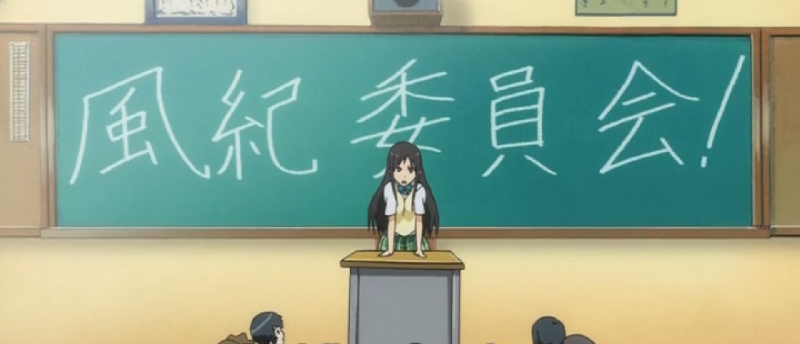
Yui Kotegawa's strictness about “shameless” things, and her hatred of them, invoke a denial of the self and the oppression of sexual expression. Her extensive approach in admonishing anything that is perverted or shameless contrasts with her eventual romantic and sensual realizations regarding a certain character. Since this causes her tsundere tendencies, she can represent the denial of the self because she denies or doesn't understand that humans by nature are sexual beings. Even her brother, Yuu Kotegawa, believes she acts immaturely in her approach to boys and other romantic things. Basically, all of the ordeals and personality surrounding Yui parallel to how society can sometimes be hypocritical in stigmatizing certain sexual tendencies and expressions even though they are innate desires, and this can be seen as an ideal the series is trying to portray. And her eventual mentally deviation from her strict behavior regarding perverted things represents how most of us have such thoughts. We just have to find the right person to do them with, as does she, though she doesn't actually do anything with him.
She also highlights Rito Yuuki’s selfless and kind side, making him seem better, thus supporting him and adding to his main character status.
Yami - Golden Darkness – Konjiki No Yami
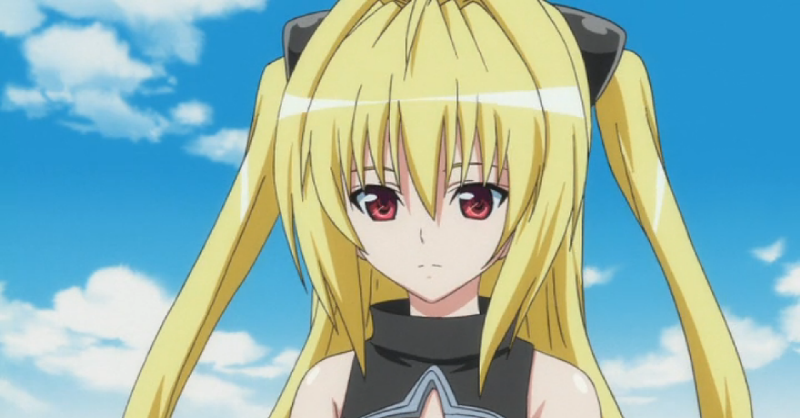
Dazzlingly golden like a bright morning star, having the dark shadow that comes with it being equally as beautiful and destructive, Yami is the perfect waifu for the darkness filled or gothic. She is a mysterious assassin, so it may be surprising seeing her with principles and virtue, as seen when she dislikes perverted things(of course, she too begins brandish such shameless thoughts, but with her chosen man), and when she chooses not to kill her assassination target when she finds out that the target is actually nice, contrary to what her deceitful contractor told her. Because she figures this out by looking at his personality herself instead of being deceived by the false information of her contractor, we see a lesson in life. It's a lesson on not being deceived by the words of others, especially if it's about another person. And some of us can relate to this, because there are times where we may have been the target of scrutiny or false libel that doesn't show our true character; and conversely, we could have been on the other end and have received negative information on someone who turns out to actually be a nice person. So since Yami employs these values, she is a beautiful and surprisingly principled assassin.
Taizou Motemitsu
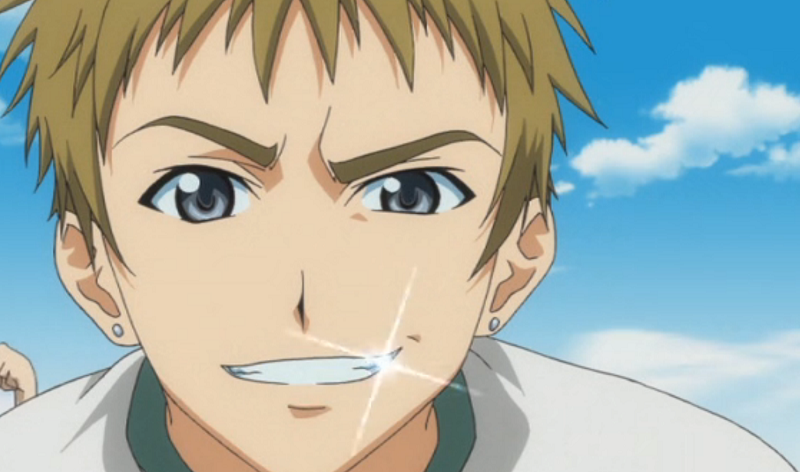
If you want a lesson in confidence and not giving up, look at Taizou Motemitsu. If you want a lesson in approach and personality, look at Taizou Motemitsu with a judging eye. He is often rejected despite his good looks and suaveness – perhaps disgustingly suave - make us think about our love lives from a different perspective. You see, you don't always need to be handsome or suave to get ladies, and being so doesn't always work. Sometimes you just need a good character and personality, something that Taizou perhaps doesn't have. Although he is not a jerk, any blatantly good character in him is not seen. However, he does have some strong personality traits, because he doesn't give up despite being rejected countless times, and he holds confidence in himself despite being disappointed every time he is rejected. This can be a lesson to us all to not give up and "just do it!" Basically, Taizou's good trait is emotional intelligence since he doesn't dwell on his failures and instead strives for success.
Akiho Sairenji
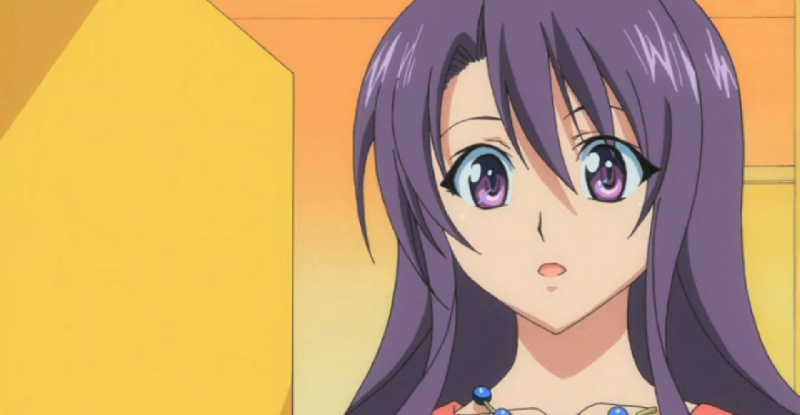
There's a common misconception that all women are sweet and innocent and loyal and lovable, or at least there used to be. Akiho Sairenji breaks this misconception and is somewhat of a rare character design when she doesn't take her relationships seriously and is somewhat of a "man eater." This contrasts to her innocent little sister Haruna Sairenji, adding another aspect to the show which shows a new personality trait and foils and emphasizes another character's personality traits.
Additionally, given that she is one of the two university-age young adults in the series, she shows the differences between the child characters and university adults; and also parallels how when people go to college, they can go wild and "hookup" and don't have or want a serious relationship until their fill of debauchery has been had and they are ready to settle down with their careers.
Yuu Kotegawa
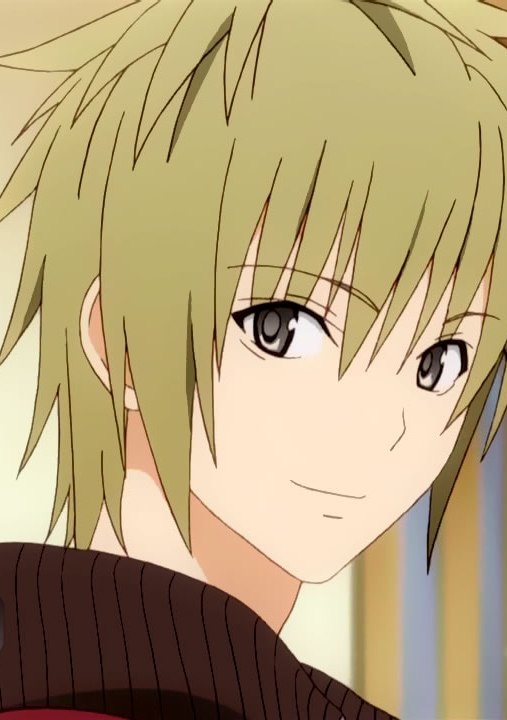
Yuu Kotegawa is another university-age young adult in the series, and also shows the differences between the child characters and university adults, showing the reality that the characters are children and have childish thoughts. The "ladies' man" persona his sister dislikes contrasts with his little sister's, Yui's, persona the same as Akiho's and Haruna's personas. Given this, and how Yuu is dating Akiho, it seems the series wanted to add and relate university-age adults for a reason, perhaps to appeal to an audience that thinks about these sort of university generalizations. And maybe it, you know, satirizes or parodies how university students can be perceived, because they don't actually often become "ladies' men" or "man eaters." In reality, many of them either quit or study hard; there isn't much room for fun and nonsense in university.
Kyouko Kirisaki
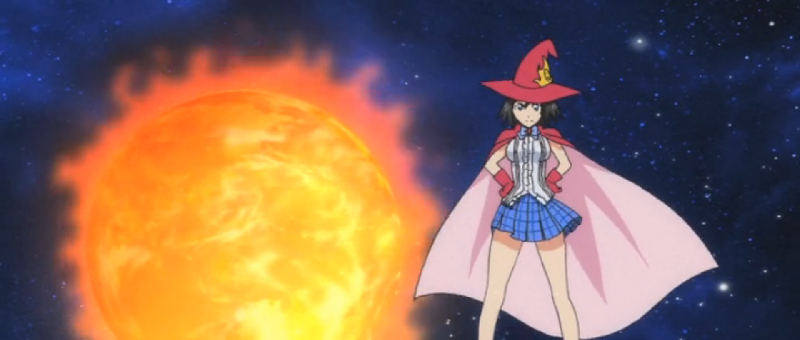
She is an idol loved by many, who plays Magical Kyouko in her own show, can effortlessly control fire, and is an alien. And let's put an emphasis on alien because she, Run, and Lala, are aliens and idols, and are in fact the only idols in the series; there are no human idols, which could be an important fact. Perhaps it is telling us that, in real life, idols are foreign to the common people and have alien-like traits and personalities. This is somewhat true because idols needs to have a unique trait to become popular; they have to practice and get others to help them do stuff, and have an ungodly determination to complete their creations. In essence, it's a rare talent even for the elite. So maybe the the show is telling us to not look up to those characters, because they are aliens, and to instead model the human characters that have no ungodly powers and just have certain good personality traits.
Also, as far as Kyouko is as a support character, she is typical and helps to bring out traits seen in Run and Rito, and a little in Lala who is seen to enjoy television and is a moderate fangirl of Magical Kyouko.
Momo Velia Deviluke
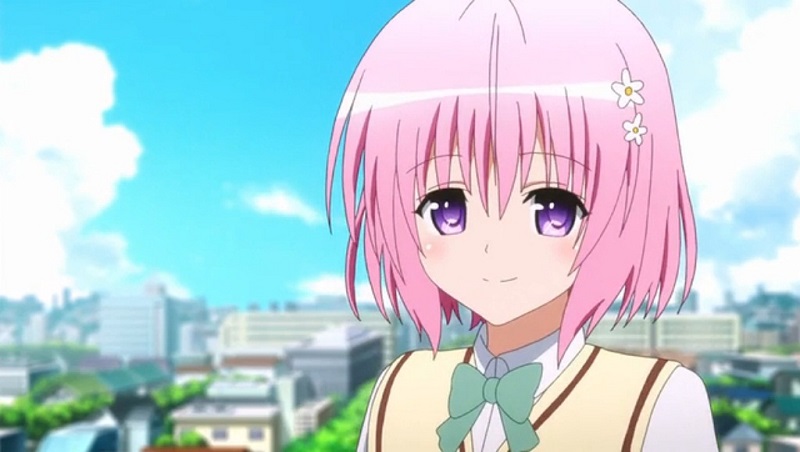
Momo Velia Deviluke is a valuable addition to the series because she lets us see the "harem king" in Rito, and gives us some lighthearted perverted moments even at night when everyone is asleep, making the show all-encompassing. And we get much plot.
Celine
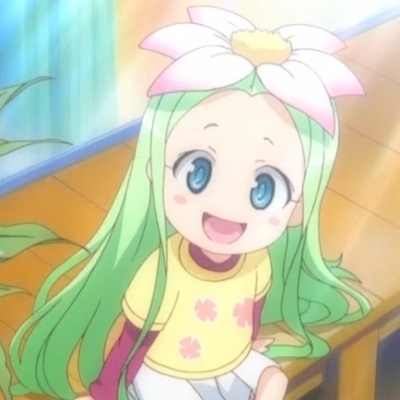
Celine is a very cute recurring child character, making our hearts warm and activating our parental instincts. However, we can take a step back and look at the situation for what it is and look at the deeper issues surrounding it. First of all, Lala gives Celine to Rito - and we don't need another testament to how Lala’s good intentions lead to troublesome inventions and burdens. A burden is essentially what Celine is - she is a child without experience or maturity, who high schoolers must raise. In any other real life setting, people would find this preposterous, how Lala made Rito a childhood parent, giving him responsibilities to take care of a child who he comes to love dearly. He does what he can to protect and take care of her, but he is Rito, a clumsy guy who is described as an immature figure by his sister. Plus, the people around him are mostly high schoolers, so they don't know how to take care of a child and must focus on their relationships and studying; their only saving grace is that Momo can telepathically speak to plants, thus allowing her to teach Celine what is right from wrong. Furthermore, Celine is left to her own devices a lot of the time and "terrorizes" women and causes chaotic events from her childish curiosity, further proving that she is a burden. And to top it off, Lala experiments on her guiltlessly; although it is harmless and the show is lighthearted, it's still experimentation on a child.
Basically, Celine brings questionable events parallel to real life issues to the series, and she represents the real life trouble of the products of teenage pregnancy: trouble for oneself, trouble for others, and trouble for the child. And actually, the whole series does expand on this concept a bit, as we don't see much mature or wholesome adult presence, forcing the children to frequently fend for themselves in extremely dangerous situations. The most mature and wholesome adult is Ryoko Mikado, though she too is questionable since she teases Rito.
Now we have seen more To Love-Ru characters from meaningful perspectives, have seen some deeper issues and parallels invoked by the show, as well as parodied and satirized, and can enjoy the series even more.




